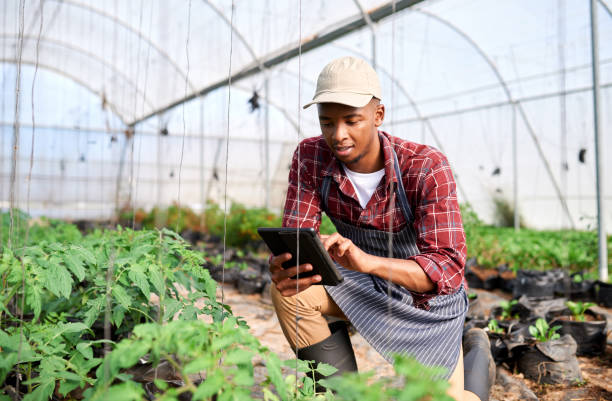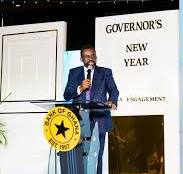Introduction
African governments are confronted with an annual multi-billion-dollar infrastructure funding deficit that cost the continent a 2% annual reduction in its GDP growth. Adopting innovative financing solutions through domestic resource mobilization and governance reforms is therefore critical for governments balancing competing budget lines.
The African Development Bank (AfDB) estimates that Africa needs $130–$170 billion annually for a robust infrastructure development. Thus, Africa faces a significant annual infrastructure funding deficit, with estimates ranging from approximately $68 billion to over $100 billion annually,
This gap, it is said, stems from factors like insufficient public funding due to low tax-to-GDP ratios, regulatory complexities, perceived investment risks, a lack of access to long-term capital, and poor project preparation.
African governments tend to be the major investors in infrastructure contributing approximately 40% of the current $80 billion annual investment, while a significant funding gap still remains.
Key Contributive Factors
- Low Public Funding Capacity:
Africa has the lowest tax-to-GDP ratio globally (16%), which limits the capacity for governments to fund large infrastructure projects, as 95% of infrastructure financing currently comes from the public sector.
- Perceived Investment Risk:
Investors often perceive high risks associated with African infrastructure projects due to regulatory challenges and currency volatility, which constrains access to capital.
- Poor Project Preparation:
Many projects fail at the preparatory stage due to a lack of quality planning and studies, making them unattractive to private sector investors.
- Limited Access to Capital:
Developing countries, including those in Africa, find it difficult to secure financing from conventional debt sources because investors have low risk tolerance.
- High Costs of Service:
The cost of infrastructure services like energy, water, and telecommunications is multiple times higher in Africa compared to other regions, further hindering development.
Africa’s Public Debt Burden
On the back of Africa’s heavy infrastructure funding gap is also her huge total public foreign debt that had reached over $1.8 trillion by 2022, but the issue is not just the total volume but the structure of the debt, which is often more costly.
Debt service payments consumed a large share of government revenue and export earnings in 2023, diverting funds from vital sectors like health and education.
The Issue of Sovereign Gold Reserves Monetization
Africa’s heavy infrastructure financing deficits couple with rising public foreign debt the sustainability of which is said to be in the balance, calls for serious domestic resources mobilization.
Among Africa’s precious mineral resources endowment gold, the most exploited and traded, offers governments the opportunity to leverage monetization of sovereign gold reserves as an infrastructure financing alternative
What it Takes
In other to monetize sovereign gold reserves for infrastructure, a country needs a robust legal and regulatory framework for gold management, including a Gold Board, alongside a strategy to develop and implement gold-based investment products like bonds or monetization schemes that attract investors.
It also requires building domestic capacity to manage gold assets, fostering public trust in such schemes, and potentially securing international partnerships to leverage the gold for infrastructure development through mechanisms like sovereign wealth funds (SWFs).
The key elements required:
Regulatory and Legal Framework: Establishment of a dedicated regulatory body, like the Ghana Gold Board, is essential to oversee the buying, selling, and management of gold, as well as to formalize the sector and promote value addition
Develop Gold-Based Financial Products: Create various schemes, such as the Gold Monetization Scheme (GMS) in India, which allows individuals and institutions to deposit gold for various terms and receive interest in return. These products can then be used to raise capital for other investments.
Financial and Investment Strategies:Create Sovereign Wealth Funds (SWFs): Establish an SWF to pool and invest capital, including from gold reserves, into long-term infrastructure projects.
Facilitate Public-Private Partnerships (PPPs): Use the gold reserves to provide government support for financing infrastructure projects through PPPs, attracting private and institutional investment.
Secure Blended Finance: Layer of different types of capital, potentially including government funds from gold reserves, with commercial and institutional funds to support large and complex projects.
Market and Investor Engagement:
Build Trust and Promote Schemes: Effectively promote gold-based investment schemes to the public and institutions to mobilize domestic gold holdings and generate capital.
Develop Domestic Expertise: Invest in building national financial and technical expertise to manage gold assets, monitor fund managers, and select suitable infrastructure projects.
Forge Regional & Global Partnerships: Collaborate with regional forums like the African Sovereign Investors Forum (ASIF) to create an enabling environment for international institutional investment in infrastructure assets.
Attract Foreign Investment: Create a positive regulatory environment and leverage government and political relationships to attract foreign funds into national infrastructure and energy assets.
Blocking the Illicit Financial Flows (IFFs) Loophole
Illicit financial flows (IFFs) is a major drain on Africa’s economy, with estimates of annual losses ranging from tens of billions to nearly $90 billion, undermining development and the ability to fund public services.
The main sources are illegal commercial practices, such as trade misinvoicing, followed by crime and corruption. Foreign multinational companies operating in Africa’s extractive industries are said to account for 60 percent of the illegal transaction with the remaining 40 percent accounted for by some local entities
Tackling IFFs requires stronger financial regulations, international cooperation, enhanced transparency, and improved digital administration and tax collection within African countries to prevent further resource leakage.
Beefing Up Local Content
Africa is blessed with unquantifiable minerals resources endowment and that is her competitive edge that ought to be treated with the seriousness it deserves in order to maximise economic benefits from it.
Africa’s extractive industry landscape needs serious governance, prudent management, responsible, eco-friendly and sustainable exploration and exploitation of mineral resources and that should be non-negotiable.
Strategic positioning of minerals resources revenue and its prudent management could impact the gross national economies of African minerals resources rich countries most positively than has sadly been the case for decades.
Aurum Elite Bullion L.L.C.an International gold bullion trading, Advisory and Consultancy firm specializing in gold monetization for infrastructure financing services among others, is ready,willing and able to foster fruitful collaboration with interested governments of minerals resources rich countries in Africa and worldwide.
An Eco-Enviro News, Africa magazine Feature by Mohammed A. Abu




